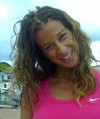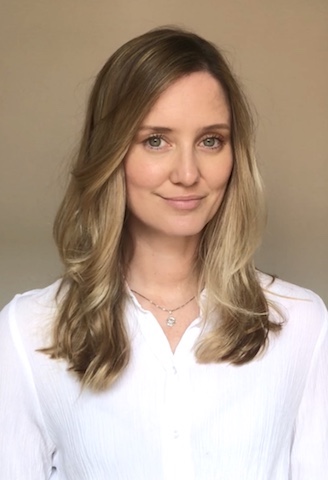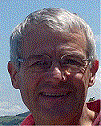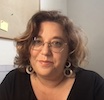Studying at the University of Verona
Here you can find information on the organisational aspects of the Programme, lecture timetables, learning activities and useful contact details for your time at the University, from enrolment to graduation.
Academic calendar
The academic calendar shows the deadlines and scheduled events that are relevant to students, teaching and technical-administrative staff of the University. Public holidays and University closures are also indicated. The academic year normally begins on 1 October each year and ends on 30 September of the following year.
Course calendar
The Academic Calendar sets out the degree programme lecture and exam timetables, as well as the relevant university closure dates..
| Period | From | To |
|---|---|---|
| Sem. 1A | Sep 24, 2018 | Oct 27, 2018 |
| Sem. 1B | Nov 19, 2018 | Dec 21, 2018 |
| Sem. 2A | Feb 18, 2019 | Mar 23, 2019 |
| Sem. 2B | Apr 8, 2019 | May 18, 2019 |
| Session | From | To |
|---|---|---|
| Sessione d'esame Invernale | Jan 21, 2019 | Feb 16, 2019 |
| Sessione d'esame Estiva | Jun 17, 2019 | Jul 27, 2019 |
| Sessione d'esame Autunnale | Aug 26, 2019 | Sep 21, 2019 |
| Session | From | To |
|---|---|---|
| Sessione Invernale | Feb 27, 2019 | Mar 13, 2019 |
| Sessione Estiva - I appello | Jun 10, 2019 | Jun 24, 2019 |
| Sessione Estiva - II appello | Jul 3, 2019 | Jul 16, 2019 |
| Sessione Autunnale - I appello | Oct 9, 2019 | Oct 21, 2019 |
| Sessione Autunnale - II appello | Dec 4, 2019 | Dec 17, 2019 |
| Period | From | To |
|---|---|---|
| Festa di Ognissanti | Nov 1, 2018 | Nov 1, 2018 |
| Festa dell’Immacolata | Dec 8, 2018 | Dec 8, 2018 |
| Vacanze di Natale | Dec 22, 2018 | Jan 6, 2019 |
| Vacanze di Pasqua | Apr 19, 2019 | Apr 23, 2019 |
| Festa della liberazione | Apr 25, 2019 | Apr 25, 2019 |
| Festa del lavoro | May 1, 2019 | May 1, 2019 |
| Festa del Santo Patrono - S. Zeno | May 21, 2019 | May 21, 2019 |
| Festa della Repubblica | Jun 2, 2019 | Jun 2, 2019 |
| Description | Period | From | To |
|---|---|---|---|
| Prima parte del primo semestre | Lab. 1A | Oct 29, 2018 | Nov 10, 2018 |
| Seconda parte del primo semestre | Lab. 1B | Jan 7, 2019 | Jan 19, 2019 |
| Prima parte del secondo semestre | Lab. 2A | Mar 25, 2019 | Apr 6, 2019 |
| Seconda parte del secondo semestre | Lab. 2B | May 20, 2019 | Jun 1, 2019 |
Exam calendar
Exam dates and rounds are managed by the relevant Humanistic Studies Teaching and Student Services Unit.
To view all the exam sessions available, please use the Exam dashboard on ESSE3.
If you forgot your login details or have problems logging in, please contact the relevant IT HelpDesk, or check the login details recovery web page.
Should you have any doubts or questions, please check the Enrollment FAQs
Academic staff
 monica.antonello@univr.it
monica.antonello@univr.it
 valentina.biino@univr.it
valentina.biino@univr.it
 paolamaria.caleffi@univr.it
paolamaria.caleffi@univr.it
 licia.landi@univr.it
licia.landi@univr.it
 giuseppe.longo@univr.it
giuseppe.longo@univr.it
 beatrice.melodiafesta@univr.it
beatrice.melodiafesta@univr.it
 anja.meyer@univr.it
anja.meyer@univr.it

Migliorati Lorenzo
 lorenzo.migliorati@univr.it
lorenzo.migliorati@univr.it
 045802 8135
045802 8135
 maria.mori@univr.it
maria.mori@univr.it
 paolo.nitti@univr.it
paolo.nitti@univr.it
 michele.picotti@univr.it
michele.picotti@univr.it
 stefania.pontrandolfo@univr.it
stefania.pontrandolfo@univr.it
 dora.renna@univr.it
dora.renna@univr.it
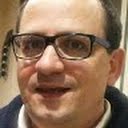
Tacconi Giuseppe
 giuseppe.tacconi@univr.it
giuseppe.tacconi@univr.it
 +39 045 802 8655
+39 045 802 8655
Study Plan
The Study Plan includes all modules, teaching and learning activities that each student will need to undertake during their time at the University.
Please select your Study Plan based on your enrollment year.
1° Year
| Modules | Credits | TAF | SSD |
|---|
2° Year activated in the A.Y. 2019/2020
| Modules | Credits | TAF | SSD |
|---|
3° Year activated in the A.Y. 2020/2021
| Modules | Credits | TAF | SSD |
|---|
4° Year activated in the A.Y. 2021/2022
| Modules | Credits | TAF | SSD |
|---|
English laboratory 4th year
5° Year activated in the A.Y. 2022/2023
| Modules | Credits | TAF | SSD |
|---|
| Modules | Credits | TAF | SSD |
|---|
| Modules | Credits | TAF | SSD |
|---|
| Modules | Credits | TAF | SSD |
|---|
| Modules | Credits | TAF | SSD |
|---|
English laboratory 4th year
| Modules | Credits | TAF | SSD |
|---|
| Modules | Credits | TAF | SSD |
|---|
Legend | Type of training activity (TTA)
TAF (Type of Educational Activity) All courses and activities are classified into different types of educational activities, indicated by a letter.
Foundations and Teaching of Mathematics I (2018/2019)
Teaching code
4S006126
Credits
9
Language
Italian
Scientific Disciplinary Sector (SSD)
MAT/02 - ALGEBRA MAT/03 - GEOMETRY
The teaching is organized as follows:
Lezioni
Laboratorio [Gruppo 1]
Laboratorio [Gruppo 2]
Laboratorio [Gruppo 3]
Laboratorio [Gruppo 4]
Learning outcomes
PRE-SCHOOL
1. Knowledge and Understanding
At the end of the course the student will have to:
- Learn about the necessary steps to develop an educational path for the development of basic mathematical skills in the 3-6 years band;
- know the main theoretical models concerning the curricular programming and the evaluation of the learnings for the age range 3-6 years;
- know how to frame the evolution of the main aspects of mathematical thought;
- Know the logical connectives and the related truths tables; Know the properties of logical operations;
- know the concept of relation, order and equivalence relation;
- Know how to work with sets;
- Know the characteristics of numeric sets, operations on them, and their properties;
- The positional notation of numbers also in bases other than base ten;
- Understand the sense of mathematical formalisms and know how to build algorithms for modeling simple problems taken mainly from real contexts.
2. Applying Knowledge and Understanding
At the end of the course, future teachers will be able to:
-propose reflections and discussions on the daily experiences of children or on activities especially prepared for them to acquire the ability to count objects or events,
-to be familiar with numbers and with the structure of the first operations,
- to gradually reach the early processes of abstraction, the use of simple symbols and an early idea of operation.
Future teachers will be able to propose reflections and discussions aimed at acquiring the capacity to construct sets, to establish the belonging or not to a whole, to relate objects according to the criteria indicated, to identify the possible relation between two sets, knowing how to sort objects in a collection.
3. Making Judgements
At the end of the course students will have a critical and analytical attitude that enables them to question their beliefs and spontaneous ideas.
4. Communication skills
At the end of the course students will have to know how to use a rigorous and appropriate language for discipline.
5. Learning skills
At the end of the course students will have to Be able to independently find the teaching material valid and useful for building learning pathways.
PRIMARY SCHOOL
1. Knowledge and Understanding
At the end of the course the student will have to:
- know the necessary steps to develop an educational and formative project for the primary education band for the development and consolidation of basic mathematical competences;
- know how to frame the evolution of the main aspects of mathematical thought;
- Know the logical connectives and the related truths tables;
- Know the properties of logical operations;
- know the concept of relation, order and equivalence relation;
- Know how to work with sets;
- Know the characteristics of numeric sets, operations on them, and their properties;
- know the positional notation of numbers also in bases other than base ten;
- To know the main theoretical models concerning the introduction of natural numbers for the primary schooling band;
- Understand the sense of mathematical formalisms and know how to build algorithms for modeling simple problems taken mainly from real contexts.
2. Applying Knowledge and Understanding
At the end of the course the future teachers will be able:
-to propose to the children learning pathways introducing natural, integers and decimals numbers, and the operations on them, their comparison and their representation on the line, and on different numbering systems.
Future teachers will propose activities aimed at stimulating the conscious use of techniques and procedures of arithmetic calculation with natural and decimal numbers, written and mental, also with reference to real contexts so that children know how to derive implicit and explicit information from problematic situations and know how to choose and compare solution strategies.
-They will also be able to use new technologies to enrich the didactic proposal.
3. Making Judgements
At the end of the course students will have a critical and analytical attitude that enables them to question their beliefs and spontaneous ideas.
4. Communication skills
At the end of the course students will have to know how to use a rigorous and appropriate language for discipline.
5. Learning skills
At the end of the course students will have to Be able to independently find the teaching material valid and useful for building learning pathways.
Program
Propositional and Predicate Logic and sets
Relations and functions
Bibliography
| Activity | Author | Title | Publishing house | Year | ISBN | Notes |
|---|---|---|---|---|---|---|
| Lezioni | A. Baccaglini Frank, P. Di Martino, R. Natalini, G.Rosolini | DIDATTICA DELLA MATEMATICA | Mondadori | 2018 | 9788861845503 | |
| Lezioni | Laura Giovannoni | Lingua e logica | Francoangeli | 1997 | ||
| Lezioni | M. Bergamini G. Barozzi | matematica multimediale.blu, vol. 1, Zanichelli | Zanichelli | 2015 | ||
| Laboratorio | A. Baccaglini Frank, P. Di Martino, R. Natalini, G.Rosolini | DIDATTICA DELLA MATEMATICA | Mondadori | 2018 | 9788861845503 | |
| Laboratorio | Bruno D'Amore | DIDATTICA DELLA MATEMATICA | Pitagora | 2001 | ||
| Laboratorio | Laura Giovannoni | Lingua e logica | Francoangeli | 1997 | ||
| Laboratorio | M. Bergamini G. Barozzi | matematica multimediale.blu, vol. 1, Zanichelli | Zanichelli | 2015 | ||
| Laboratorio | Bruno D'Amore | Problemi | Franco Angeli | 1993 | 8820479265 |
Examination Methods
The examination test is written, with theoretical questions and exercises.
Type D and Type F activities
Modules not yet included
Career prospects
Module/Programme news
News for students
There you will find information, resources and services useful during your time at the University (Student’s exam record, your study plan on ESSE3, Distance Learning courses, university email account, office forms, administrative procedures, etc.). You can log into MyUnivr with your GIA login details: only in this way will you be able to receive notification of all the notices from your teachers and your secretariat via email and soon also via the Univr app.
Stage e Tirocini
Le attività di tirocinio indirette e dirette, per complessive 600 ore pari a 24 crediti formativi universitari, come stabilito dal D.M. 249/2010, hanno inizio nel secondo anno di corso e si svolgono secondo modalità tali da assicurare un aumento progressivo del numero dei relativi crediti formativi universitari fino all'ultimo anno.La struttura generale del tirocinio prevede:
- II annualità 100 ore di tirocinio pari a 4 CFU
- III annualità 100 ore di tirocinio pari a 4 CFU
- IV annualità 175 ore di tirocinio pari a 7 CFU
- V annualità 225 ore di tirocinio pari a 9 CFU.
Il tirocinio è seguito da insegnanti tutor coordinatori e da tutor organizzatori distaccati, rispettivamente a tempo parziale e a tempo pieno, presso il CdS. Esso prevede attività che si sviluppano secondo modalità di partecipazione periferica e modalità di partecipazione attiva: tali attività dovranno essere, adeguatamente documentate da parte dello studente e saranno supervisionate dai tutor competenti.
La frequenza alle attività di tirocinio è obbligatoria.
Documents
| Title | Info File |
|---|---|
|
|
pdf, it, 115 KB, 23/06/21 |
Progetto Dinamo corsi di formazione continua
I corsi del Progetto Dinamo sono una proposta di formazione continua per i/le docenti della scuola dell'infanzia e primaria in servizio elaborata dal Corso di Studi in Scienze della Formazione Primaria dell'Università di Verona.
La loro frequenza, in numero limitato, è aperta anche agli studenti di Scienze della formazione primaria.
L'iscrizione non comporta oneri per gli studenti.
Per i corsi di 8 ore sarà riconosciuto 1 CFU nei crediti liberi; per quelli di 16 ore i crediti liberi riconosciuti saranno 2.
Le modalità di iscrizione saranno comunicate e gestite tramite i rappresentanti degli studenti.
Documents
| Title | Info File |
|---|---|
|
|
pdf, it, 198 KB, 29/08/22 |
Gestione carriere
Linguistic training CLA
Practical information for students
Documents
| Title | Info File |
|---|---|
|
|
pdf, it, 325 KB, 02/05/23 |
|
|
pdf, it, 212 KB, 02/05/23 |
|
|
pdf, it, 131 KB, 02/05/23 |
Student mentoring
Student login and resources
Graduation
Documents
| Title | Info File |
|---|---|
|
|
pdf, it, 434 KB, 07/02/24 |
|
|
pdf, it, 418 KB, 30/11/23 |
|
|
pdf, it, 131 KB, 19/03/24 |
eTwinning
Il Corso di SFP di Verona fa parte del Gruppo Europeo per la formazione eTwinning per i futuri insegnanti – Initial Teacher Education (ITE). Seminari di presentazione della piattaforma e delle sue potenzialità, introduzione alla comunità e/o laboratori sull’uso della stessa sono proposti annualmente come parte integrante dei Laboratori di Lingua Inglese per la Professionalità Docente, e quindi come parte dell’offerta formativa; per il II anno anche con attività progettuale in lingua inglese, studente-studente o a piccoli gruppi.
Per il I anno, a partire dall’ A.A. 2017/2018 è stato realizzato con il supporto dell’USR Veneto e la collaborazione delle ambasciatrici eTwinning un incontro seminariale di presentazione della comunità e piattaforma eTwinning, come parte del Laboratorio di Lingua Inglese per la Professionalità docente. Gli studenti svolgono attività di ricerca e reperimento materiale nel portale eTwinning, studiano alcuni progetti considerati “buone pratiche” e si confrontano con una breve attività in piccolo gruppo sui primi passi di introduzione e orientamento ad un progetto eTwinning. Solitamente sono coinvolti circa un centinaio di studenti.
Per il II anno, a partire dall’A.A. 2020/2021, è stato introdotto un Laboratorio eTwinning (12 ore – 1CFU) di progettualità didattica in lingua inglese. Gli studenti svolgono attività individuali all’interno della Comunità volte a costruire una rete di partner e cogliere ogni potenzialità offerta dalla piattaforma. Inoltre, viene proposta una simulazione progettuale, in piccoli gruppi, dall’introduzione dei partner alla valutazione e disseminazione dei risultati di un progetto eTwinning. Solitamente partecipano circa un centinaio di studenti. Al termine del modulo è richiesto un portfolio digitale in lingua inglese. I futuri docenti esercitano contemporaneamente competenze linguistiche, digitali e sociali facilmente riutilizzabili nella professione futura.
Per il V anno, a partire dal AA 2022/2023, è stato introdotto, all'interno del Laboratorio di Lingua Inglese, un Laboratorio eTwinning di progettualità didattica con un altro ITE (12 ore – 1CFU).
Nell'a.a. 2022/2023 è stata attivata e realizzata una collaborazione con SFP - Università di Cagliari.
Nell'a.a. 2023/2024 si è attivata una collaborazione con l'Università di Castilla-La Mancha (Spagna).
Le attività realizzate sono state presentate durante il Coordinamento Nazionale eTwinning ITE
- a Firenze il 17 e 18 marzo 2022
- e a Lecce il 15 e 16 maggio 2023


